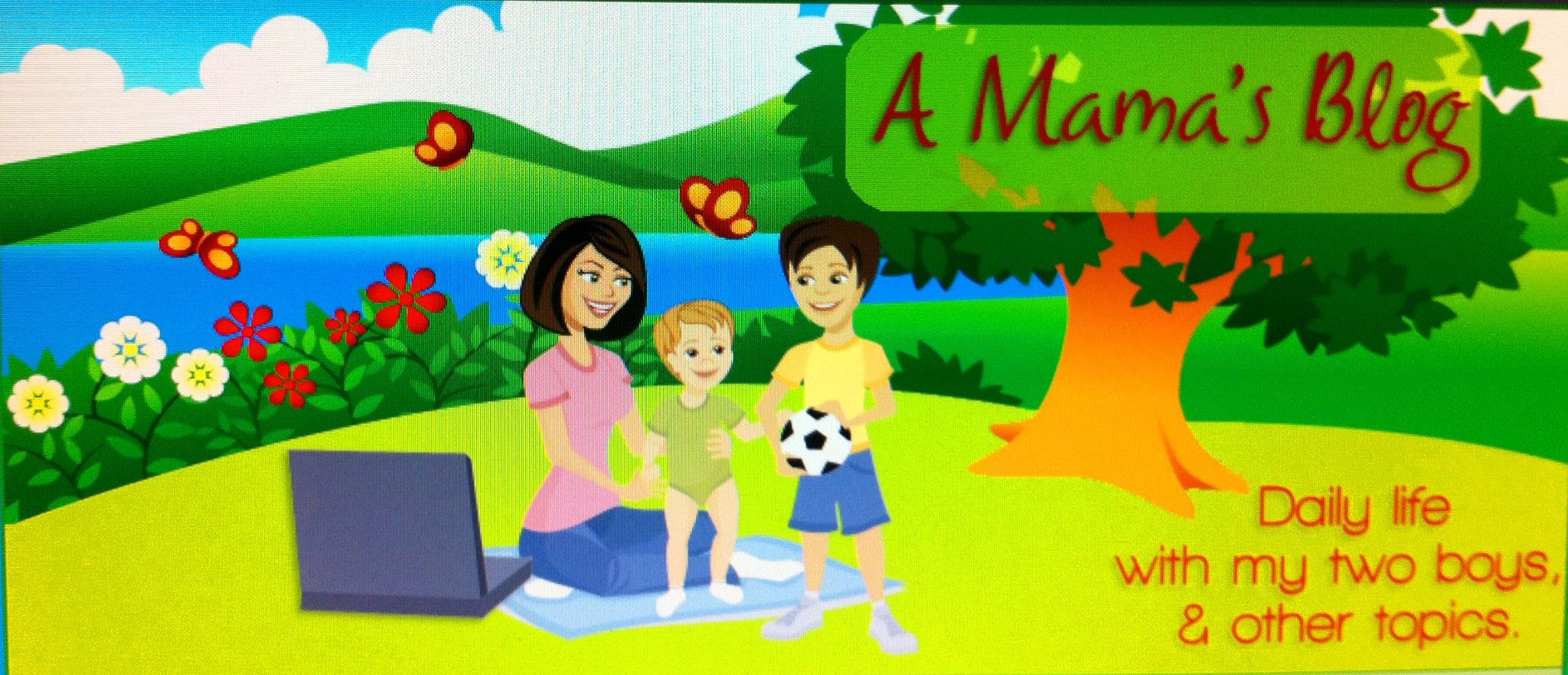Cross Posted on BlogHer
Five years has past since my first and only C-section. I shared my experience, and my feelings about my C-section last week in the post, My C-section- Five Years Later. This was the third part in a series of C-section posts I have written. The first post in the series, The Reality of C-sections, has generated a wide variety of thoughts, feelings, and comments. One comment that kept coming up was, my experience was only one out of millions. Some readers felt that in no way, was my experience the only reality of a C-section.
I agree. No two C-sections are the same, just as no two births are the same. I decided to interview a random sample of women, who had given birth by C-section five years ago or longer. I wanted to find out how women felt about their C-sections after time had passed.
I put the call out on Twitter, for any woman willing to answer my questions about their C-section, five years ago or longer. At the time, I had about 2,500 followers, and posted the tweet over several days, at different times, hoping to get a wide range of women who would respond. Some asked what angle I was looking for, but I told them the truth- I wasn’t looking for any angle- I just wanted their true feelings and thoughts. Ten women answered my questions.
I was fascinated, surprised, shocked, and shed a few tears over their C-section experiences. I have struggled on how to present their stories to you, and have decided not to. I am going to let their own words tell you their experiences.
Brenna lives in Oregon, and owns Clementinenw.com. Jane (not her real name) asked to remain anonymous, and is the owner of a family magazine. Kristi has an on-line shop, Zuzugirlhandmade.com. Emily, was the first woman to respond to my request. Renae blogs at Life Nurturing Education. Beth G. is the owner of the site, Confessions of a Mom. Justine runs the website, JulianArts, which provides state-of-the-heart-education during the birth years and beyond. Beth S. blogs at Savvy Saving Mom. Natalie, who lives in Texas, and blogs at Tell Me About It, and Jill blogs at Writing My Life One Blog at a Time.
This post is broken into two parts. Here is part one of these women’s experiences with their C-sections:
How did you feel about your birth experience with your C-section, during the first year post-partum?
Brenna– “I was disappointed that it didn’t work out the way that I had wanted though, [I] felt that there were several circumstances that stacked the cards against me. I didn’t have my doctor as she was out of town. They had to induce with Pitocin because my water broke and labor did not really start on its own. I felt like my water broke before my son was ready to be born. Because of those things I wondered if everything was done in the best way for me and my son, although I tried not to play “what if” too much since I couldn’t go back and change anything. I did feel very lucky to have had a happy and healthy baby.”
Jane– “I was always sad when I thought about it because the hospital where it was performed kept Mom and baby apart during recovery. I didn’t get to hold my baby for more than 5 hours after he was born. And while I was in recovery, my husband kept coming in to check on me and I got so mad at him for leaving our baby alone!!! I was beside myself that our little one had only been on this planet for a few hours and he was all by himself!!! Right after he was born in the operating room, they put him by my face – but I couldn’t touch him – arms are stabilized. Very, very sad. I licked his little head a little bit – just so I could make contact with him.”
Kristi– “I went through a terribly long and painful labor with inadequate medical attention. My first c-section came at a point in the labor that I was so exhausted and scared and really just wanted the baby out. I did not have any regrets and honestly didn’t think about it much!”
Emily– “For the most part I felt ok about my birth experience with my C-section during that first year after it. I went through a few moments every so often where I thought that I hadn’t gone through real labor and therefore may have missed something. But those moments were few and far between.”
Justine– “I was pretty traumatized. I really felt (and still do) that the OB was trying to “teach me a lesson” about my situation. I was a teen mother, but a well informed one. I wanted natural childbirth, and planned to breastfeed…etc. I asked a lot of questions and didn’t really care if the OB liked me or not. He gave me a vertical outer incision, for no reason that anyone has been able to explain since. It runs from my navel to my pubic bone and is still very raised, bright red, puffy, and ropey even 20 years later. When any health care provider sees it, they usually gasp and ask if i was in an accident. When i tell them that it is from my c/s, a few have accused me of lying. They say “no doctor would do that” But indeed, one did. At my 6 week visit, when i asked if the scar was going to heal alright, the OB said “well, i guess motherhood isn’t going to be as fun and glamorous as you thought it was” Nice guy. So, it is really difficult for me to separate the c/s from the treatment from the OB. He was judgmental and rude, and I can’t help but feel that he acted out his judgment on my belly and created a scenario in which his predictions about my parenting abilities would be likely to come true.”
Did you suffer from complications from your C-section? (infections, torn stitches, long recovery, numbness, pain, emotional issues, etc.)
Renae– “I did not have any medical issues with my first c-section. (After my 3rd, [c-section] infection set in.) Having a c-section was the opposite of the birth I planned though, so disappointment resided in my heart for awhile. It didn’t take long for that to slip away. It was worth it to give my son every chance for life.”
Jill– “1996 numbness lasted months. Still have some parts that are not fully recovered. 2003 infection from incision, pulled stitches.”
Natalie– “After my first C-section I had some major gas issues. I know that is a problem after many deliveries, but it was bad. They kept telling me if I would pass gas they would feed me real food instead of just broth. I just couldn’t do it. I ended up having a procedure to help alleviate the pain I was in. I also ran a fever.
There was some numbness in the scar area after all of them, but it wasn’t anything different from what one would feel after any other invasive surgery.
My 4th and final C-section came with complications. After each successive C-section scar tissue built up. It took longer to get to the babies each time. During my final C-section I was given a spinal instead of an epidural. That was different than all the other deliveries. Right after they gave me the shot the woman in the room next to me needed to have an emergency C-section right then. We had the same doctor so he went to deliver her baby. When he came back they checked me to make sure I was still numb. I gave them the go ahead to proceed with the surgery. Unfortunately because there was so much scar tissue in the way of the baby I started to feel things way before the surgery was over. When they actually got to my daughter I felt like my insides were being ripped out. The poor anesthesiologist felt horrible. He got a shot ready to put in the IV to put me out completely as soon as they had her out. I was having a tubal ligation as well so it was still going to be a bit before my surgery was done. I saw my daughter for a couple of seconds before I fell asleep. I don’t remember how long it was before I actually had a chance to hold my daughter, but since it was my 4th C-section I knew I would have plenty of time with her. Those first couple of hours weren’t going to make or break our relationship.”
Beth G.– “No, I didn’t have any complications.”
Beth S.– “I remember feeling a little “ripped off” after the fact, for not having the total birth experience. But it was always a vanishing thought because I knew that the C-Section had become necessary and was done for all the right reasons. My overwhelming joy toward my first born always overpowered any thoughts of sadness or negativity.”
Do you feel your C-section interfered at all or delayed bonding with your baby?
Justine– “YES! Although I was committed to breastfeeding, the nurses had already bottle fed my son several time before I saw him. They fed him sugar water, and formula, and sterile water…it was terrible. And frankly, i was too drugged up to do much about it. That episode of impotence set the tone for many weeks of my early parenting experience. I looked to experts to give me the final answer when it came to parenting choices because I had no faith in my body, there was almost no trust between my baby and I, and it was so hard. Finally, I found a LLL and began to strengthen my skills. Thank goodness! But it was only once I ditched the medical model that parenting became anything but this overwhelming, scary responsibility. I found my footing, and my son and I got on track. I still wonder if and how it might have damaged our long term relationship though.”
Jill– “No, not really. With the 1996 [c-section] I had difficulty breastfeeding. It lasted 4 weeks and [then we] gratefully switched to formula. I bonded better with the baby once I was not in pain from breastfeeding and the c-section.
Brenna– “I really don’t. I was able to breastfeed my son within the first hour, which I think helped immensely. He also stayed in the room with us at all times. Luckily my husband was great and was able to change him and bring him to me when I wanted. I just held him for most of the time until I got too tired. We bonded very quickly.”
Renae– “Yes. My son was whisked to the neonatal unit 2 hours away, and I had to stay in the hospital to recover.”
Beth S.– “They brought me my son while I was in recovery, but I was so out of it that I couldn’t totally enjoy that small moment that we had. I took comfort sending my husband out to go be with him until I was fully awake and in my room. Yeah, I was unhappy about that! In that sense, the bonding was delayed. But there were no repercussions from that except for my own unhappiness. I didn’t get to nurse him until the next day either, but that didn’t cause any physical or latching on problems. Just my own discontent!”
How long was it after your C-section before you felt “back to normal?”
Kristi– “It was much harder to recover from my first c-section in ’03. They used big metal staples that had to be removed. I had far more pain the first time around and spent four days in the hospital. The second time around I was begging to leave on day three and they let me go. I did not take any pain killers after leaving the hospital with either birth. It’s hard to recall but I think the pain getting up and down lasted about two weeks.”
Natalie– “Well I felt mostly fine as soon as I got home. I have a pretty high pain tolerance. With my 2nd I was the maid of honor in a wedding 11 days later. I was sore of course, but I didn’t let the fact that I had a C-section stop me from doing what I wanted. I had my 3rd C-section on a Tuesday and was in church on Sunday. Other than a few headaches I recovered fairly quickly.”
Emily– “I don’t remember but I didn’t feel like it was awful. It was definitely a number of weeks. Because I never had anything but a C-section I have little to compare my recovery to, but I do know that the epidural I had during the first one took much longer to recover from than the spinal block I got for my second one. At the time of my first C-section I lived in a three-story apartment: door on ground level, kitchen on second level, bedrooms and bathrooms on top level. So that whole you can’t walk up and down stairs thing really wasn’t working for me.”
Beth S.– “I think it took a while! For the longest time I kept feeling like my insides might fall out if I got up wrong! I remember slowly starting to do things again like cleaning the house, etc. I probably took longer out of my own fears.”
Justine– “It was about a year before I felt like I was used to the new state of things. I lost the “weight” within a few months, but the scar was/is a lingering issue for me. I have spent 20 years being deeply embarrassed and ashamed of my stomach…so “back to normal” for me never happened. But I was able to participate in exercise and normal activities without pain within 6 months.”
Was your C-section planned or scheduled?
Jill– “The first was unplanned, but not an emergency. The second and third were planned.”
Renae– “Emergency c-section. I was not awake for the birth of my baby and didn’t see him until I was released from the hospital 3 days later.”
Justine– “No. My waters broke at 6am. I was making progress and had reached 6cms by about 5:30pm that night. However, ‘hospital policy’ at the time was that there was a 12 hour time limit on ruptured membranes. I had the c-section at 6pm and the staff got to get home by 7pm on a Saturday night. How convenient!”
Emily– “My C-section was an emergency. I was given cervadilon Monday evening, threw up all night long, was given pitocin on Tuesday morning, started pushing sometime around Jeopardy, pushed for an hour, he wouldn’t turn his head in the right direction (he wasn’t breech, but was facing up when she should have been facing down), so the doctor told me I should just go for the C-section.”
Beth S.- “Mine was not planned. According to my Dr., my son was 10 days overdue and his amniotic fluid was lessening. I went to the hospital for a stress test after which time they decided to admit me to induce labor. I was induced for a day with no results. My son started showing signs of distress on the heart monitor, so it was decided that a C-Section was necessary.”
I will have the second part of these interviews posted next week. Please check back, and I would love to hear any comments you have. Feel free to share your own experiences as well.



